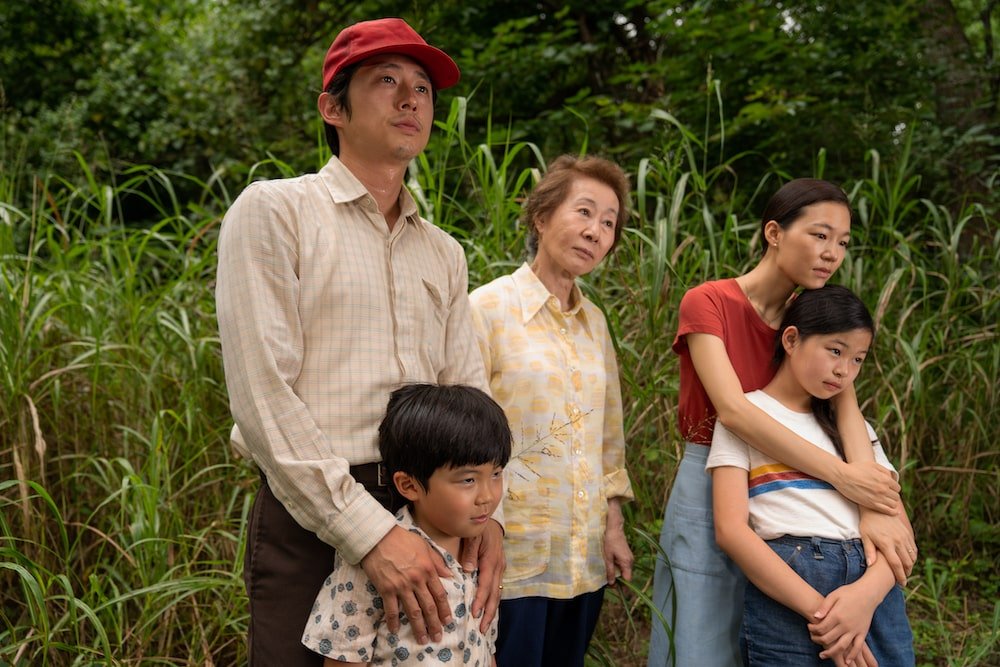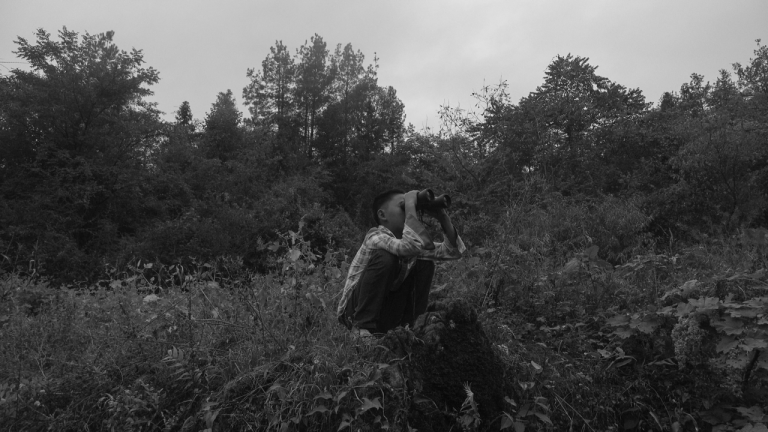An Interpretation of Minari’s (2020) Marxist Themes: Minari is a semi-autobiographical film written and directed by Lee Isaac Chung. It is about a Korean-American family that shifts from California to Arkansas in the 1980s to start a farming business. With the political backdrop of the so-called Reagan Revolution in America, entailing tax cuts and a wider blend of private and public property, this film already sees a certain nudge in favor of the family’s decision. The Yi family follows the father, Jacob, to a recently acquired farmland that he calls his “Garden of Eden.” This biblical reference already symbolizes his hope for the family’s happiness and a new start. Jacob (Steven Yeun), against the will of his wife, Monica (Han Ye-ri), has taken the decision to move away from their factory jobs and have their needs met by farming Korean vegetables in America.
Similar to Interpretation of Marxist Themes in Minari (2020): Salt of the Earth [1954] – A Landmark American Independent Cinema on the Working Class
In Minari, we watch this family navigate their way through a few diasporic conflicts and also see a difference in how the three generations of the family identify themselves vis-a-vis their political identities. This film is extremely nuanced and rooted in the transient reality of each one of the character’s journeys. Studying this spread of characters gives us a keen insight into the “Immigrant State of Mind.”
America is a country where autocracy is supposedly annihilated. “The land of the free” received a lot of immigrants from around the world in the 1900s. They went seeking greater economic opportunity and, in turn, added to the snowballing effect of a greater growing American economy. This created space for dialogue about economic distribution patterns, and in 1931, freelance writer James Truslow Adams popularized the phrase “American Dream” in his book Epic of America: “But there has been also the American dream, that dream of a land in which life should be better and richer and fuller for every man, with opportunity for each according to his ability or achievement.”
Minari is a story that is born out of a context surrounded by these ideas and thoughts. It is interesting to look at this story from the perspective of an arguing school of thought, Marxism. Marxist theory is present as a critique of the capitalist state, and America stands as an embodiment of the same. Hence, Marxist political theory plays a critical role in understanding the ideas behind what drives the United States of America. Furthering the same discussion, a look into Marxist theories will give us a larger canvas to deliberate and examine the conflicts in the film.
This film was released in 2020. Now more than ever, there is an upsurging need to hear stories that trace back the patterns we have set in stone for ourselves. Events like the Industrial Revolution take place during a certain time period on paper. But we truly see it coming to life in the common stories we tell each other, even if they happen to be a few decades later. Minari’s story holds up for either side of the argument with the capitalist coup of the world. Looking at it from the Marxist school of thought perspective, we see a prominent semblance with the “Conflict Theory,” which is said to be a primary agent of society’s functioning. For Marx, society’s workings were predicated on two main distinctions- the ideas of “base and superstructure.”
Base refers to a certain society or community’s economic character. Atop this rests the culture and social institutions, the superstructure. For Marx, it is the base that determines what a society will be like. With an understanding of this, Marx additionally proposes conflict in society as the primary means of change. Economically, he saw conflict exist between the owners of the means of production, the bourgeoisie, and the workers called the ‘proletariat.’ Further, Marx maintained that these conflicts would appear consistently throughout history during times of social revolution.
Minari (2020) maintains these underlying themes of “revolution” with regard to class, citizenship, religion, and community. We notice that “conflict theory” plays an important role in setting forth and furthering the story. It is the conflict faced by the Yi family with the chicken sexing factory that gives this story a beginning. We also find a few other prominent themes from Marxist political theory that resonate with the ethos of the film.
Theme One: Modern work is alienating
Marx claims that work can be one of the greatest sources of our joy. But in order to be fulfilled at work, Marx wrote that workers need to “see themselves in the objects that they have created.” He believed that at its best, work offers us a chance to externalize what is good inside of us. Modern economies are extremely efficient based on the practices that they follow. So it becomes impossible for any one worker to derive a sense of any contribution they might be making to the real needs of humanity.
We see these feelings of alienation surface in Jacob from the get-go of the film. He feels that his contribution to the factory is in disparity with what he could contribute to the immigrant Korean community in America and, by extension, to his citizenship. Jacob’s thought of farming Korean vegetables in America can also be seen as his attempt to make his Korean identity more a part of his and his family’s life in America.
Theme Two: Modern work makes the modern worker insecure
Capitalism makes human beings replaceable. We are treated as just another factor in the means of production. Any worker can be ruthlessly cut out the minute that costs rise, and savings can be made through technology. As an extension of the psychological consequence of this, workers constantly fear being cast out, and Marxism as a sociological concept addresses this concern as a conflict against the feeling of belonging to the community.
We understand this unrest in the Yi family when it is revealed that one of the reasons for them to leave the factory branch in California was that Monica’s work was not “fast enough” for a main city outlet. She was only fast enough for the Arkansas branch. Jacob’s decision to move into farming was also based on having a secure opportunity for employment for them at all times. In her defense and rationale to shift back to California, Monica practices her speed of work in hopes of getting back to the city. She is willing to fight against the system to be a bigger part of it.
Theme three: Private property creates industry
Ownership of land plays a big role in Jacob’s decision to live in Arkansas. He says, “5 acres of the farm is a hobby, 50 acres is my dream”. He derives a sense of security and base in the economy with the acquisition of private property, thus making his family’s citizenship in the country more accessible. His drive to optimize on “ownership” of the land and to capitalize on it comes from the need to avoid alienation as labor and the willingness to run the rat race of playing a more active role in the economy.
Theme four: Ideology encourages capitalist structures
This theme relates back to the base and superstructure pyramid. The economy generates what Marx and later on Engles term as “Ideology,” which ingrains ideas of right and wrong in people. A capitalist state embodies these value judgments, which invariably feed back into the economic system in one way or another. This theme is brought up in the movie when Jacob is having a one-on-one conversation with his child outside the factory.
He tells the child, David (Alan S. Kim), that the male chicks are discarded at the factory because they are “useless” and further advises him that, as men, they need to aspire to be “useful” in their lives. We also see this driving force in Jacob to seem “successful” to his children as he argues with Monica at the hospital; he wants to set the right example for them to continue having a successful life in America. He is battling his obligation to the system within the structure of the system.
Monica seems to have trouble accepting their lifestyle, she aspires for a more conventional path of success and security for the family. We see her justifying their “house with wheels” to her mother or even overcompensating with their donation at Church. She is driven to provide for the family by doing everything in her power to feed effort into the system.
Her mother, Soonja (Youn Yuh-jung), though, is very quick to dismiss Monica’s concerns. She is visiting America for the first time and is very rooted in her identity as Korean and as a woman. We watch her wear boxers, cuss ever so casually, and be unabashed in every sense of it. She is the outsider, but she isn’t trying to defy or define her identity in terms of the prevailing capitalist ideology around her. She, in many ways, symbolizes the emancipated individual that exists outside of the capitalist conflict. The grandkids, Anne and David, have a tough time navigating life with their renegade Halmeoni. They have grown up in compliance with American society, so her approach to life is a huge culture shock for them. In the film, the grandkids represent the other end of the spectrum of immigrant transition. They are second-generation immigrants, the first to be fully American.
Lastly, and personally speaking, this film seems to have a Marxist connotation in its title itself. Minari, the film, is named after a plant that grows in abundance, not needing much care. The theme and symbol of this plant tie together the story and provide a sense of justice and closure. As dear Halmeoni says,
“Minari grows anywhere like a weed, so anybody can pick it up and eat it. Rich or poor, anyone can enjoy it and be healthy. Minari can be put in Kimchi, stew, soup, and even can be a medicine if you’re sick. Minari is wonderful! Wonderful!”


![One Fine Morning [2022] Review – Mia Hansen-Løve’s intimate drama features a luminous Léa Seydoux but feels overly familiar](https://79468c92.delivery.rocketcdn.me/wp-content/uploads/2022/12/ONE-FINE-MORNING-2022-MOVIE-REVIEW-768x415.jpg)

![The Favourite [2018] Review: Lives Up To Its Name](https://79468c92.delivery.rocketcdn.me/wp-content/uploads/2018/12/The_Favorite_HOF-768x512.jpg)

